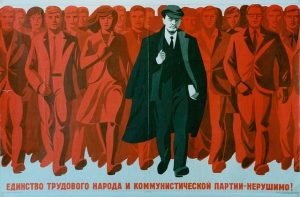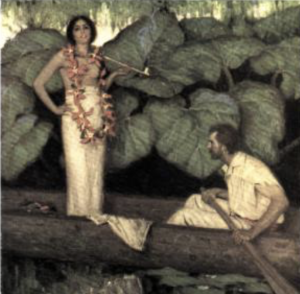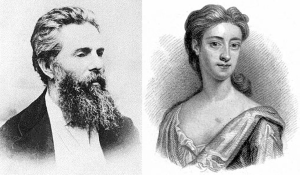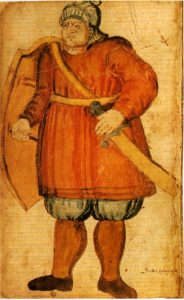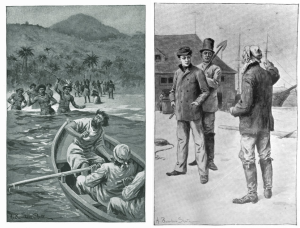Material Conditions: A Comparative Analysis of Idealism and Materialism
Through a comparative analysis of both philosophies, individuals and society as a collective can better understand the significant role that material conditions play, whether instrumental in our development or essential to it.
“The Dissolving Blues of Metaphor”: Rankine’s Reconstruction of Racism as Metaphor in Citizen: An American Lyric
By examining the ways the themes are created in the intersection of art and language, Rankine illuminates the constructed nature of racism in her politically charged, highly stylized and subversive Citizen.
Tommo’s Imprisonment to His Own Cultural Values: Recognizing Cultural Bias in Typee
It is important to consider how Tommo’s reliance on his own cultural norms prevents him from ever fully accepting the Typeean practices that are foreign to him because it shows how confined he is to his own conventions.
Cannibal Continuity: Social Cannibalism in Melville and Coates
Herman Melville’s Typee depicts cannibalism at a time when the practice’s nature, and even its existence, is an uncertain question for its contemporary readers.
Rankine and The Pronoun Dreamworld: The Creation of Compassion
In her series of lyric essays Citizen: An American Lyric, Claudia Rankine employs the pronoun “you” in both an accusatory and uniting fashion. The feelings of Black people are often neglected and scorned, and Rankine’s direct address to the reader highlights the microaggressions they experience.
Crime and Punishment: Whatever Happened to the Man of Tomorrow?
“God is dead.” So said Friedrich Nietzsche in 1882’s The Gay Science, but for some, God had been dead long before Nietzsche wrote His death into the public consciousness and put in His place stood a new breed of men, the Übermensch.
Rorschach’s Hypocrisy: The Moral Ambiguity of Watchmen’s Black and White Antihero
From the saturated pages of Watchmen emerges Alan Moore and Dave Gibbons’ antihero protagonist Rorschach, a stark representation of black and white against the vivid colouring of Watchmen’s setting and other characters.
Herman Melville’s Typee and Margaret Cavendish’s The Blazing-World: A Comparison
There are many similarities between Herman Melville’s 1846 novel Typee and Margaret Cavendish’s 1666 novel The Blazing-World. Both texts focus on an outsider who is given an intimate view of a society fundamentally different from their own.
Outlawed but Not Alone: Friendships Out of Bounds in Grettir’s Saga
This essay will be interested in how Grettir’s friendships function when they are removed from their moral and societal contexts.
Queering Melville
The largely negative outcomes of these romances seem to suggest Melville’s internal grappling with the idea that an openly queer lifestyle was not achievable or accepted in the time in which he lived and wrote.
